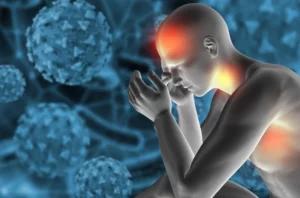 Huntington’s disease, also known as Huntington’s chorea, is a rare and devastating neurodegenerative disorder that affects a person’s physical and mental abilities.
Huntington’s disease, also known as Huntington’s chorea, is a rare and devastating neurodegenerative disorder that affects a person’s physical and mental abilities.
Today, we aim to shed light on this condition, exploring its signs, causes, and the profound impact it has on individuals and their families.
What is Huntington’s Disease?
Huntington’s disease is a hereditary disorder characterized by the progressive degeneration of nerve cells in the brain. It primarily affects the basal ganglia, a region responsible for coordinating movement and controlling emotions. The disease is caused by a mutation in the HTT gene, leading to the production of a toxic protein called huntingtin.
Signs and Symptoms
Motor Symptoms
Early signs often include involuntary movements, such as jerking or twitching, known as chorea. As the disease progresses, individuals may experience difficulties with balance, coordination, and muscle rigidity.
Cognitive Decline
Huntington’s disease also affects cognitive functions, leading to memory problems, difficulty concentrating, and impaired decision-making.
Psychiatric Symptoms
Individuals with Huntington’s disease may exhibit mood swings, depression, anxiety, and even psychosis.
Loss of Functional Abilities
Over time, people with Huntington’s disease may lose the ability to speak, swallow, and walk independently, leading to significant disability.
Causes and Genetics
Huntington’s disease is inherited in an autosomal dominant manner, meaning that a child has a 50% chance of inheriting the mutated gene if one of their parents carries it.
The HTT gene mutation involves an excessive number of repeated DNA sequences known as CAG repeats. The greater the number of CAG repeats, the earlier the disease tends to manifest, and the more severe the symptoms become.
Diagnosis and Treatment
Diagnosing Huntington’s disease typically involves genetic testing to identify the presence of the HTT gene mutation. Although there is no cure for the disease, various treatments can help manage its symptoms.
Medications can help control movements and manage psychiatric symptoms. Physical and occupational therapy can improve quality of life by addressing mobility issues and promoting independence.
Huntington’s disease is a complex and devastating condition that affects both the physical and mental well-being of those who inherit the mutation. While there is no cure, ongoing research offers hope for better treatments and possibly even a cure in the future.
Understanding the signs, causes, and implications of this disease is crucial for affected individuals and their families to better manage the challenges associated with this condition.
If you or someone you know may be at risk, genetic counseling and early intervention can make a significant difference in improving the quality of life for those affected by this disease.
Picture Credit: Freepik
